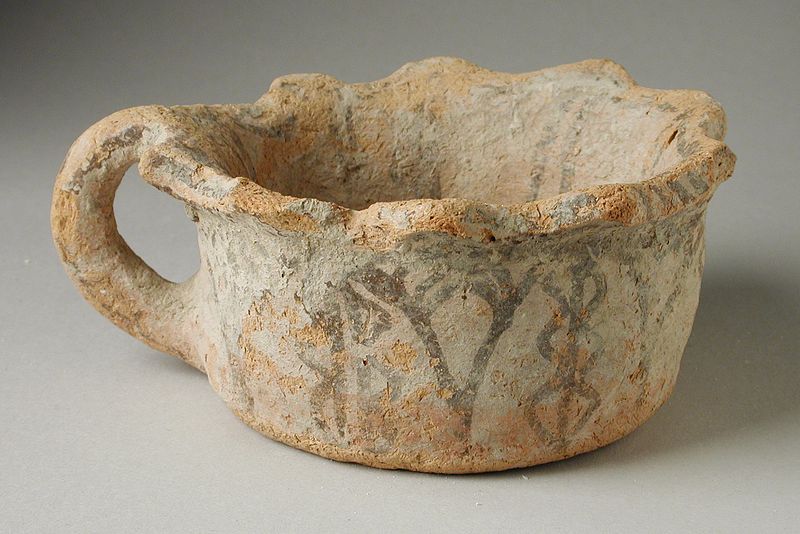 “The harvest is plentiful, but the laborers are few;
“The harvest is plentiful, but the laborers are few;
therefore ask the Lord of the harvest to send out laborers into his harvest.”
Matthew 9:37-38
+ + +
Gracious God,
you bid us pray for laborers to be sent into your harvest,
to a world in need of your healing and life.
Help us to fulfill our calling as intercessors for your world
and bearers of your grace
+ + +
A message from Sunday morning
The Second Sunday after Pentecost
Proper 6, Lectionary 11, Year A
June 14, 2020
Matthew 9:35 – 10:8: Jesus went about all the cities and villages, teaching in their synagogues, and proclaiming the good news of the kingdom, and curing every disease and every sickness. 36When he saw the crowds, he had compassion for them, because they were harassed and helpless, like sheep without a shepherd. 37Then he said to his disciples, “The harvest is plentiful, but the laborers are few; 38therefore ask the Lord of the harvest to send out laborers into his harvest.”
10:1Then Jesus summoned his twelve disciples and gave them authority over unclean spirits, to cast them out, and to cure every disease and every sickness. 2These are the names of the twelve apostles: first, Simon, also known as Peter, and his brother Andrew; James son of Zebedee, and his brother John; 3Philip and Bartholomew; Thomas and Matthew the tax collector; James son of Alphaeus, and Thaddaeus; 4Simon the Cananaean, and Judas Iscariot, the one who betrayed him.
5These twelve Jesus sent out with the following instructions: “Go nowhere among the Gentiles, and enter no town of the Samaritans, 6but go rather to the lost sheep of the house of Israel. 7As you go, proclaim the good news, ‘The kingdom of heaven has come near.’ 8Cure the sick, raise the dead, cleanse the lepers, cast out demons. You received without payment; give without payment.
+ + +
Grace to you and Peace, from God our Father and our Lord and savior, Jesus the Christ.
The death toll: I have begun several times in recent weeks by referring to the current death toll from COVID-19. It’s not news any of us can escape, but it seems important to acknowledge. I am troubled by the attitude that seems to be emerging that there is nothing we can do; we have to just let the virus kill who it will kill and get on with our lives. Some of this comes from a thoughtful concern over unintended consequences to sheltering in place. Much more, I fear, comes from a false sense of helplessness, a willful denial, or a ruthless disregard of the value of human life. I have heard people talk about “culling the herd,” as if the virus were like wolves in Yosemite chasing down the old and the weak in a herd of buffalo.
The death toll in the United States is now above 117,000. One fourth of all the reported deaths worldwide are in the United States. New Zealand has 22. And yes, New Zealand is a much smaller country. But they have had 5 deaths for every million people while we have had 357.
Australia has had 4 deaths per million people; Japan, 7; South Korea, 5. This is not about the economy versus a shutdown. It is about good governance and caring for your neighbor and people working together.
This is one of the moral and spiritual challenges of our time: to remember that we must care for one another; to understand that we’re connected. What harms one harms us all, and what lifts one lifts us all.
This is why the protesters are in the streets, to challenge the attitude that some people don’t matter.
Lives that matter: Jesus spent a lot of time with people on the margins. And his ultimate parable in Matthew’s Gospel is the one about the sheep and the goats and whether we saw and cared for those who were hungry, thirsty, sick or in prison.
All lives matter. But when society says that black lives don’t matter, we need to say, “Yes they do.” When society says the poor don’t matter, we have to say, “Yes they do.” When society says those who are vulnerable to this disease don’t matter, we have to say, “Yes they do.”
We have discovered, all of a sudden, that grocery store workers are essential workers, and the people who clean hospital rooms are heroes. We haven’t treated them that way before, and we certainly don’t pay them as heroes, but now it is clear that the least of these matter.
Wednesday will be the fifth anniversary of Dylan Roof’s attempt to start a race war by the murder of the nine members of a Bible study at Emanuel A.M.E. Church in Charleston, South Carolina: people who greeted him with open arms, invited him into their study, shared with him the Word. It’s hard to comprehend the mind and soul of someone who would do such a thing, but we have watched a callous indifference over human life as a police officer knelt on the neck of George Floyd for 8 minutes and 46 seconds. With his hand in his pocket, gazing indifferently at the crowd, he and three other officers slowly extinguished the life of a man, a father, a brother, a son, a human being conceived in the heart of God and bearing God’s image.
My father fought in World War II against an enemy that tried to fill the world with the idea that a great number of people don’t matter – not just Jews, but disabled children, gays and lesbians, political opponents, any who differed from a Germanic ideal, and those who tried to protect them. They stole their homes, their possessions, their labor, and their last breath. As a country we swore to fight that. Many died in the effort. But we have had trouble finishing the job here at home. And terribly, some bearing the name of Christ have gotten twisted up with ideas that some people matter less. We saw it again in our present administration when they attacked protesters in order to take a photograph in front of a church holding a Bible. There is lots in Christian history, but nothing in Christ, that views any people as less. Such ideas are a false and unclean spirit, an evil spirit.
Evil spirits: The spirit we saw at work in that Minneapolis police officer was an evil spirit.
This is what brings us to our text this morning. The charge Jesus gives to his followers is to announce the dawning reign of God and “Cure the sick, raise the dead, cleanse the lepers, cast out demons.”
“Cure the sick, raise the dead, cleanse the lepers, cast out demons.”
Jesus doesn’t say, “have a family, build a career, go to church, enjoy your grandchildren;” he says, “Cure the sick, raise the dead, cleanse the lepers, cast out demons.”
Heralds of a new order: There are four things I want to say about this text. The first is that Jesus sends his disciples to announce that the reign of God is at hand. The Greek word that is translated here as ‘proclaim’ carries the suggestion of a herald arriving in a town with a royal proclamation. There are stories in the scripture of runners sent from the battlefield back to the city to proclaim that the king’s forces have been victorious. But there is more here than just the announcement of a victory. These are the heralds who announce that a new king has come; the old empire has been overthrown. Such heralds are sent to proclaim the rise of the new king, to announce his benefactions, and to summon the city to embrace his reign and show allegiance.
Jesus’ disciples are not sent with what we would now consider a religious message; they are sent with a message about God’s governance of human life. It is a message that proclaims release to those who are bound, restoration to the broken, life to those who cannot breathe, the gathering of the outcast and the making whole of the human community. The mission Christ gives is to announce a new order, a new world.
The new order ‘at hand’: The second thing to say about the text concerns this word ‘near’. Jesus says to proclaim that “The kingdom of heaven has come near.” This same Greek word for ‘coming near’ gets used by Jesus when they are in the garden of Gethsemane and Jesus wakes his disciples and saying: “Get up, let us be going. See, my betrayer is at hand.” Jesus doesn’t mean that Judas will be there some day. He doesn’t mean that Judas will come in a little while. He means he is at the gate. The moment is now.
The kingdom of heaven is not ‘near’; the kingdom of heaven, God’s governance of the human heart, is ‘at hand’. It’s beginning. It’s marching up the driveway. This is our message.
Fulfilling a promise: Third, it probably struck you as odd that Jesus said, “Go nowhere among the Gentiles, and enter no town of the Samaritans.” That doesn’t sound like the universal message we expect from Jesus. We will see Jesus welcome gentiles during his ministry. And we will get that universal message at the end of Matthew’s Gospel, when Jesus sends his followers saying, “Go, therefore, and make disciples of all nations.” But right now, at this point in Jesus’ ministry, the issue is God’s promise to Israel. If God has not kept God’s promise to Israel, why should the rest of the world care what this God has to say? So during Jesus’ life, the mission is first to “the lost sheep of the house of Israel.”
About us all: Finally, it is not just the apostles to whom this word is directed. This is about all of us. This mission is not given to some; it is given to all. This is not the work of priests and missionaries; it is the work of us all. We exist as a church, and we are sent as believers, to be heralds of the news of a new governance of the world, and to “cure the sick, raise the dead, cleanse the lepers, cast out demons.”
Jesus began this section on our mission by commanding us to pray for workers to be sent into in God’s harvest. And then he promptly sends us. We are the answer to our prayer. We are the commissioned ones. We are the sent ones. We are those sent to all nations by the risen Christ. We are the ones sent to “Cure the sick, raise the dead, cleanse the lepers (the outcasts), and cast out demons (false and destructive spirits).”
Casting out demons: There are demons in the world. There are cruel and evil spirits. There are callous and selfish spirits. There are hateful and deceitful spirits. We are sent to cast them out. Cast them out of ourselves. Cast them out of others. Cast them out of our communities. Cast them out of our organizations, our churches, our nation, our world.
We are sent to cast them out – and to not leave the house empty, but to welcome the holy spirit, the sacred spirit, the spirit of Christ, the Spirit of God.
There are wounds that need healing. There are lives that need liberating. There are people pushed to the margins that need welcoming. There is a new king, a new governance, a new Spirit at hand – a living and life-giving breath breathing upon the world.
And we are the sent ones.
Amen
+ + +
© David K Bonde, 2020, All rights reserved.
Photo: https://commons.wikimedia.org/wiki/File:Woman_harvesting_wheat,_Raisen_district,_Madhya_Pradesh,_India_ggia_version.jpg Yann Forget / CC BY-SA (https://creativecommons.org/licenses/by-sa/3.0)
Scripture quotations are from New Revised Standard Version Bible, copyright © 1989 National Council of the Churches of Christ in the United States of America. Used by permission. All rights reserved worldwide.
 Watching for the Morning of June 21, 2020
Watching for the Morning of June 21, 2020
 “The harvest is plentiful, but the laborers are few;
“The harvest is plentiful, but the laborers are few; Watching for the Morning of June 14, 2020
Watching for the Morning of June 14, 2020




